Link building has always been a controversial aspect of search engine optimization. If you’re not familiar with it, here’s the gist:
Google determines a website page’s ranking for a specific keyword, in part, by assessing the websites that link to it. Generally, the more and more relevant links pointing to a page, the higher it will rank in search results.
The common analogy is that links are like votes for your website, and more votes mean a higher rank. But does this hold true in 2024 the same way it did in 2013? Do Google and other search engines still prioritize links as a ranking factor? Here’s my argument:
Links can contribute to higher rankings for profitable keywords, but they are not the best path when compared to activities like publishing, content improvements, design enhancements, conversion improvements, and branding work. Here’s why:
- Links are liabilities, while content is an asset. Content holds value beyond SEO, increases in value over time, and can be repurposed for various channels and initiatives. Links lack these characteristics. Generally, if a link doesn’t help you rank, it has no value.
- Links don’t engage or excite potential clients like content and website enhancements do. A well-crafted piece of content, a useful tool, a landing page, or an improved mobile design has a tangible value that everyone understands. Links don’t have the same impact in this regard.
- Links are expensive and uncertain. While content creation may be costly, its value and results are easier to predict.
First, let me provide examples that prove links are not necessary to rank highly for competitive legal keywords.
Examples of rankings I’ve achieved without any link-building
Throughout my career, there has been a clear correlation between links and high rankings for competitive keywords. It used to be impossible to rank for keywords that generate leads for lawyers without link building.
However, that’s no longer the case. I have achieved top-3 rankings, and often even #1 rankings, for highly competitive keywords without any link building.
I’ve accomplished this by focusing on:
- Creating the right kind of content based on user intent assessment.
- Refreshing and improving the content over time.
- Enhancing the design and user interface elements that house the content.
Here are a few examples of rankings I’ve achieved for my clients without link building. These examples include both transactional keywords (e.g., “best divorce lawyers chicago”) and high-volume informational keywords (e.g., “living trust texas”):
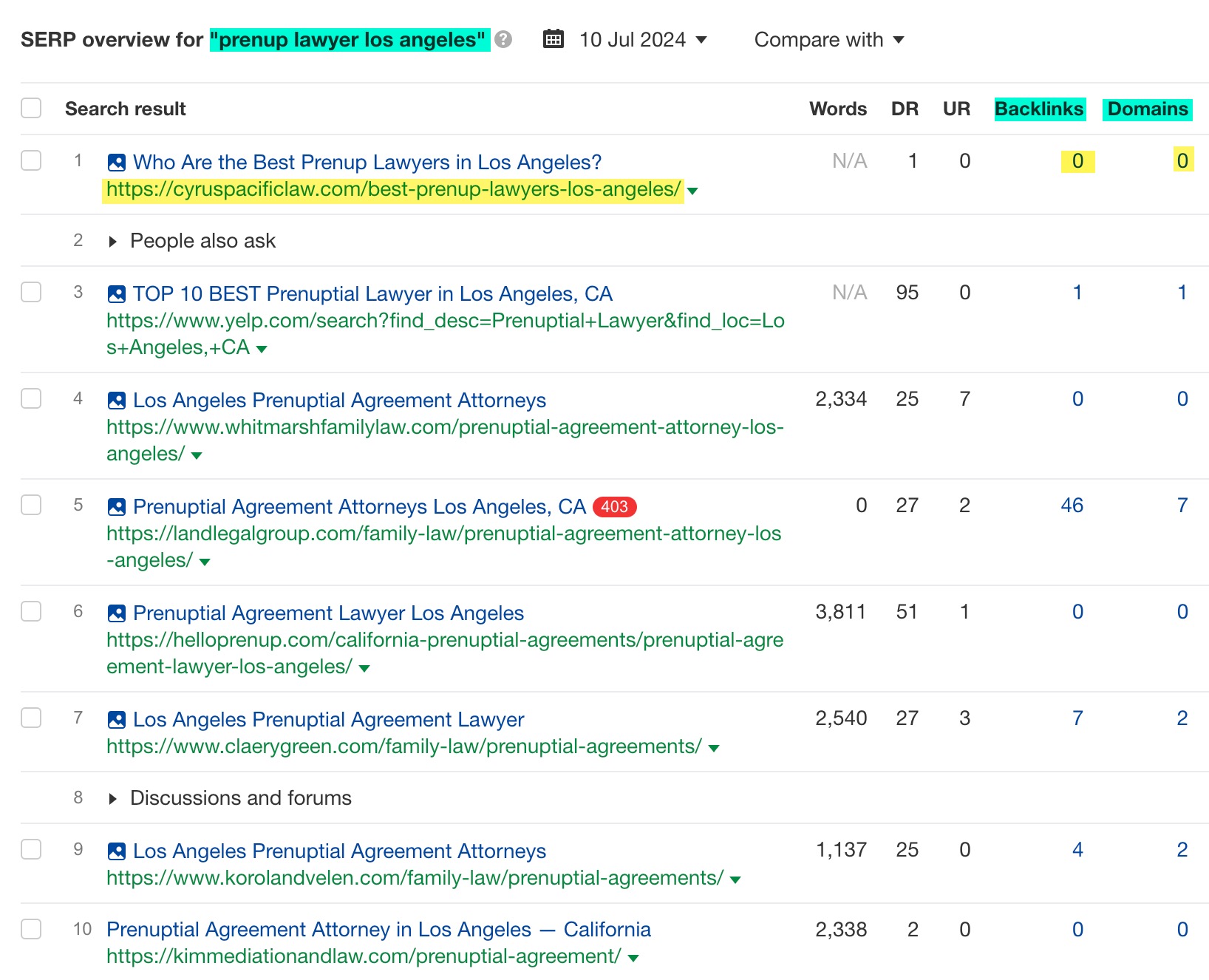

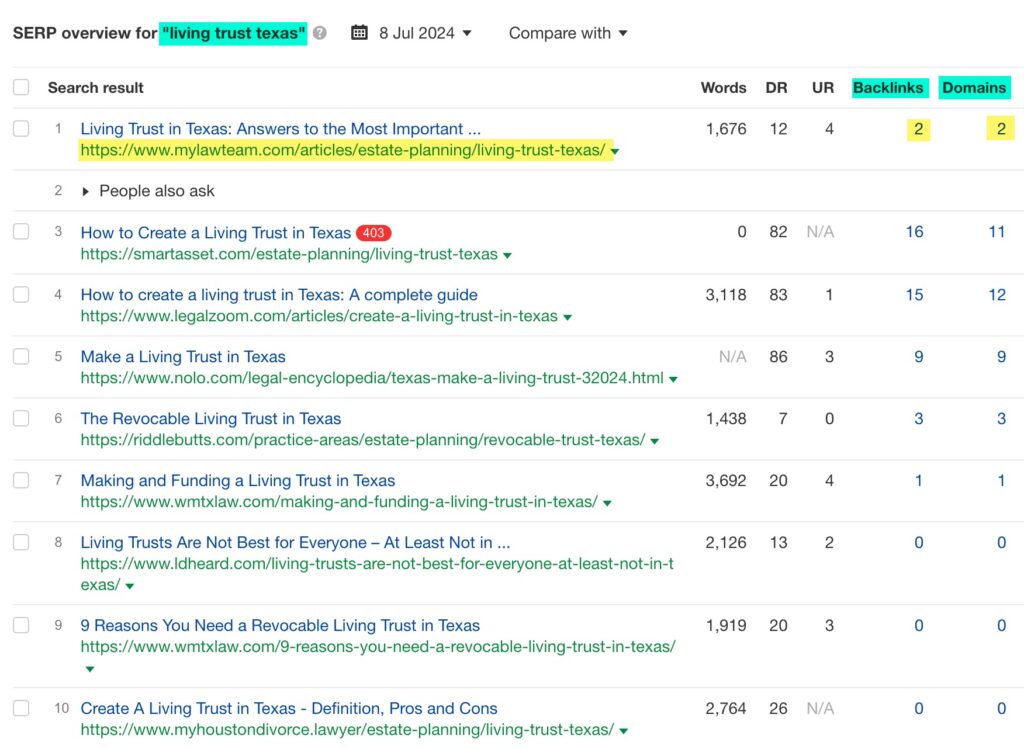
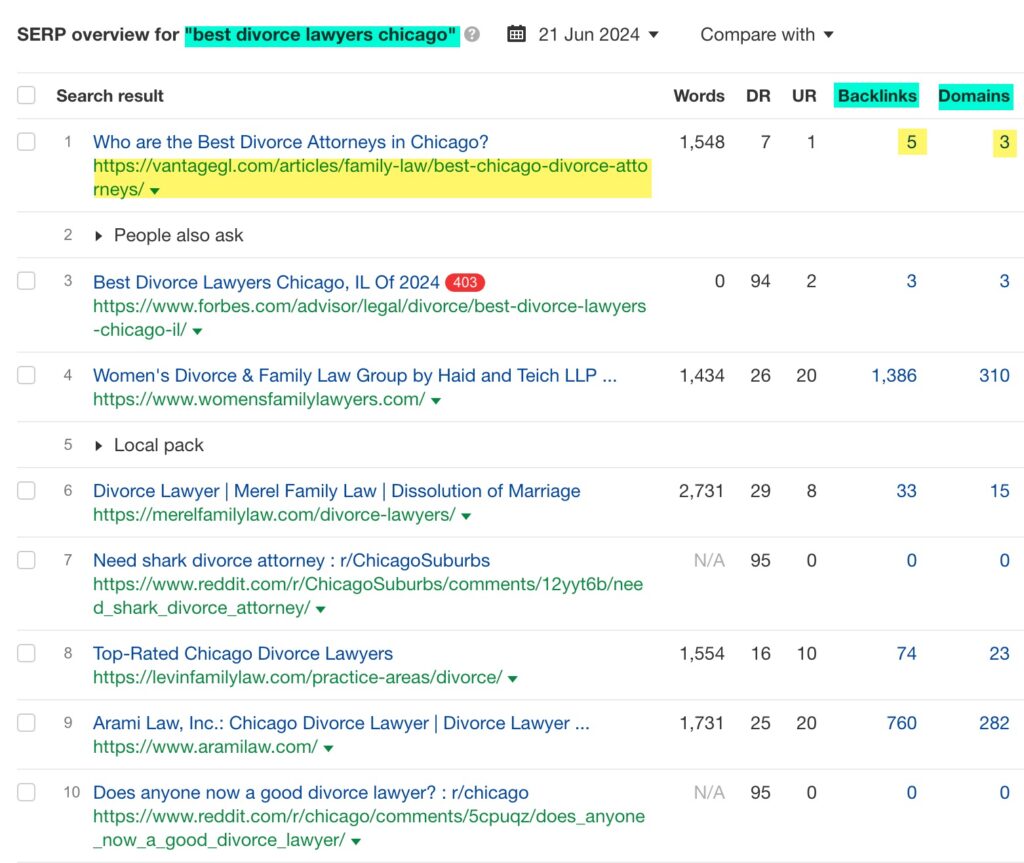
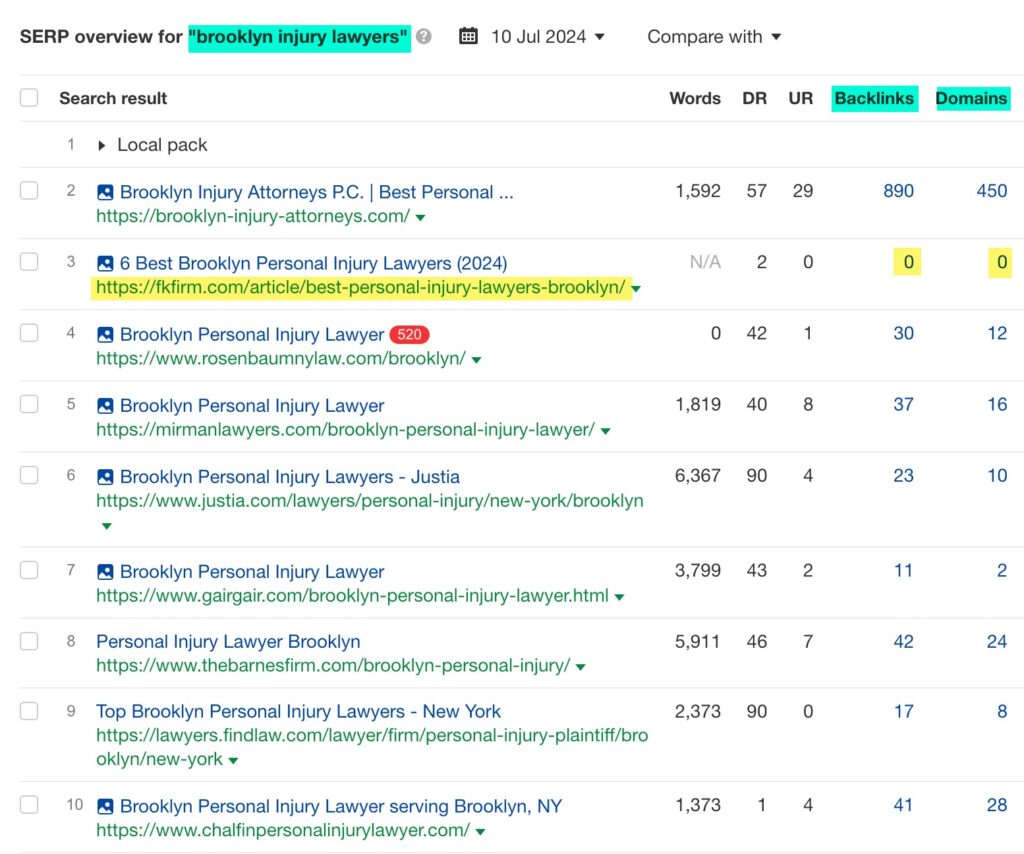
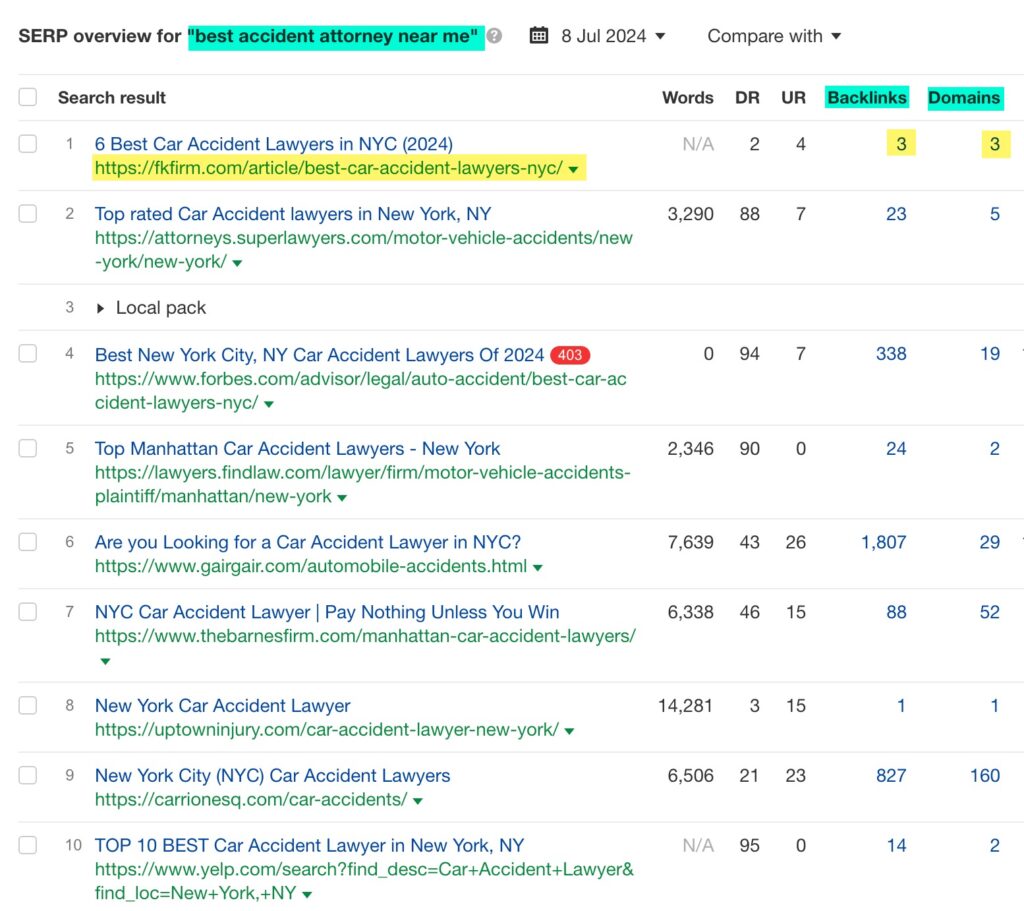
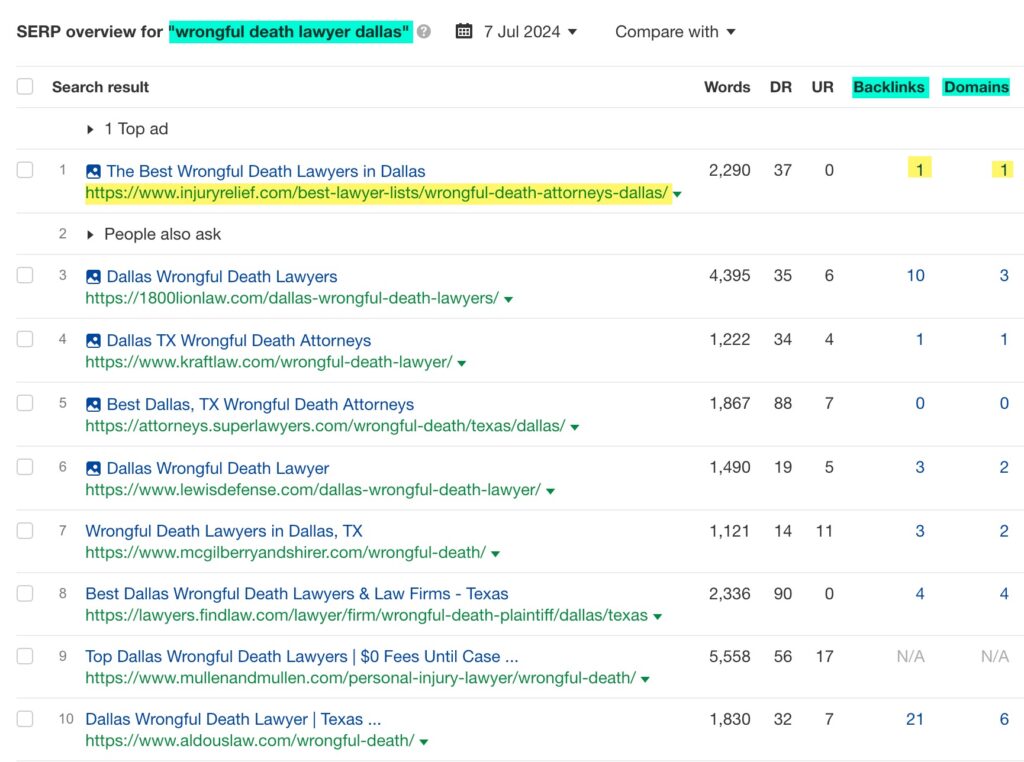
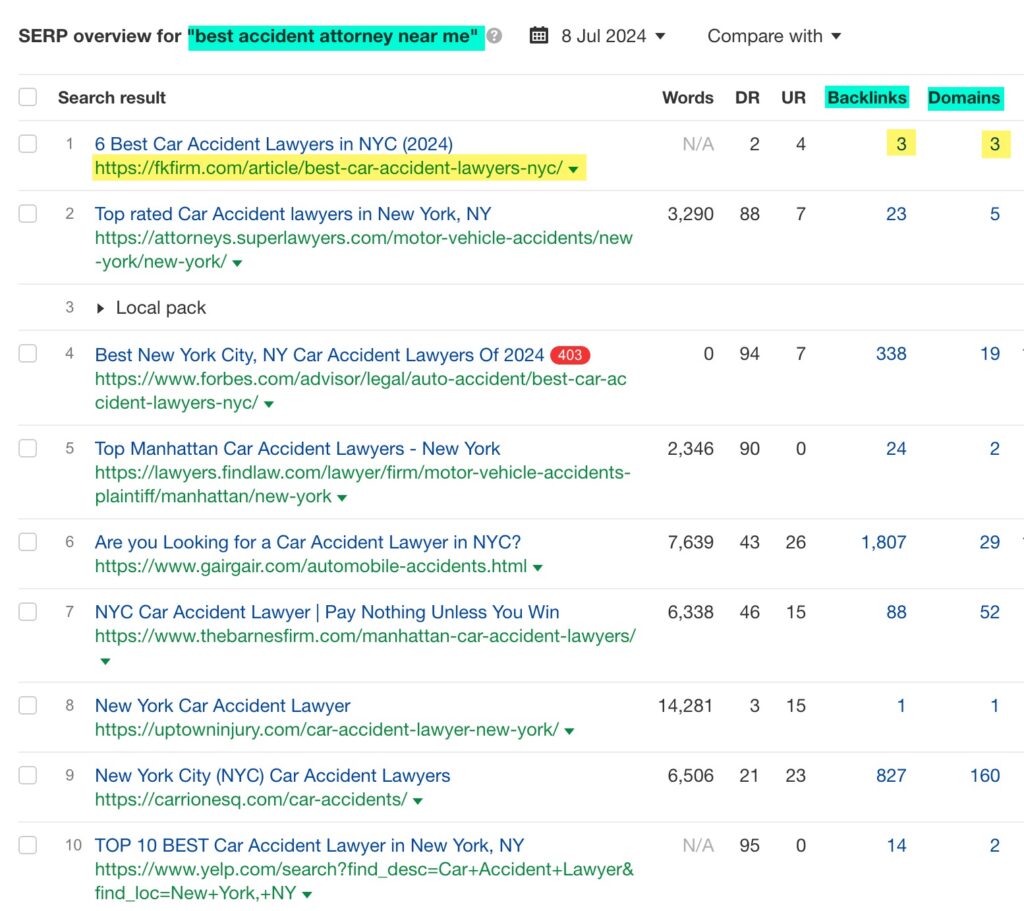
These are just a few examples I could provide, demonstrating that you can rank for lucrative keywords without intentional link-building. For me, the debate is settled: Links are not necessary for positive SEO outcomes.
Now, how do you create content that ranks without relying on links? This topic deserves a separate blog post, but we can cover the basics here.
To rank a piece of content for competitive keywords without link building, the first and most essential step is to deliver the type of content that Google wants to display to users searching for your target keyword.
Let’s take the example of “personal injury lawyers [city name].” Every personal injury lawyer aims to rank highly for this keyword. Traditionally, firms would optimize their homepage or a practice area page for this term and aggressively build links to boost their rankings.
While this approach can work, it’s not what Google prefers. Google wants to rank pages that provide the best information on the top personal injury lawyers in that city. Take a look at this search result for “Dallas PI”:
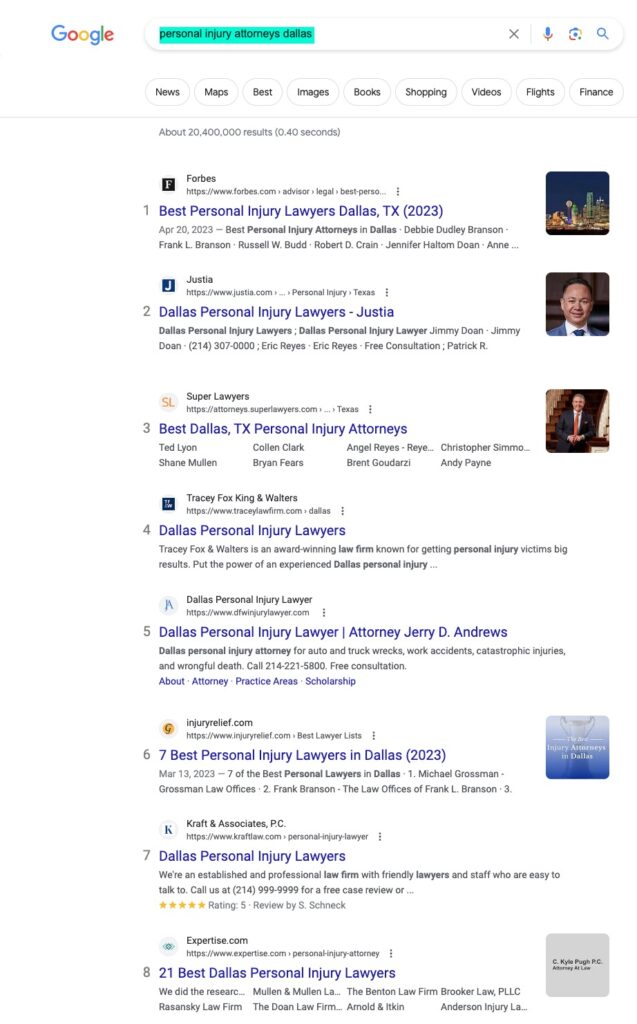
The first three results on this page are not lawyer homepages or practice area pages. They are sites that list the best personal injury law firms in Dallas. In fact, among the eight results on page 1, only three are lawyer homepages or practice area pages. These are likely ranking due to brute-force link building, meaning they rank despite their content, not because of it.
People used to assume that sites like superlawyers.com and justia.com ranked for these keywords solely because they had more “link authority” than law firm websites. However, I believe they rank because they provide the content that Google is actually looking for.
Therefore, what I do for my clients is deliver what Google wants without relying on link building. Here’s an example:
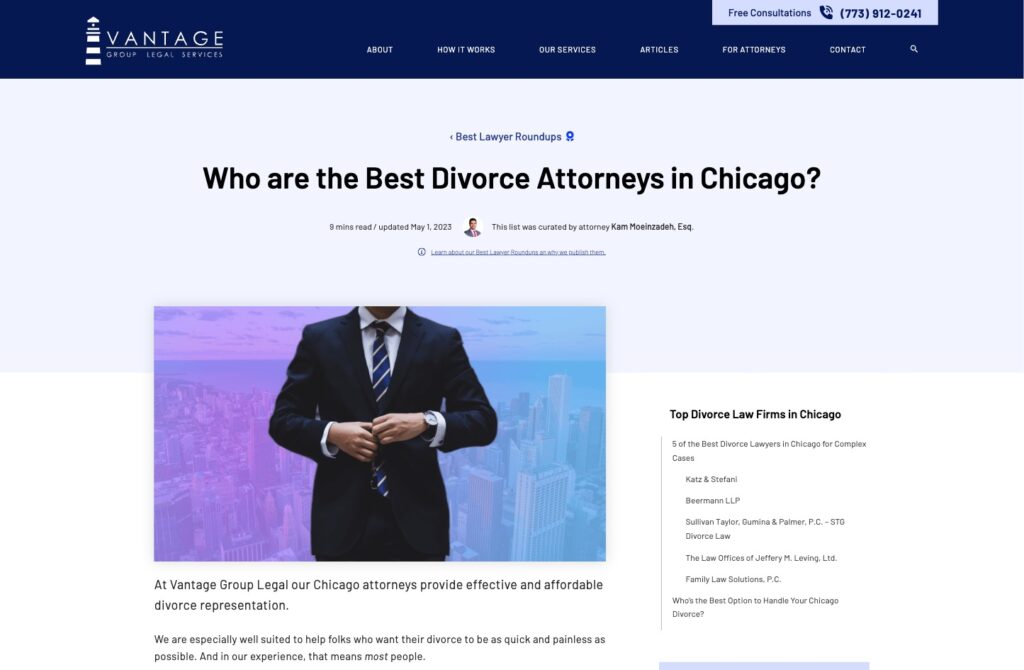
This post ranks in the top 3 for “Chicago divorce lawyer” keywords, with no link building involved.
Of course, there’s more to ranking highly for competitive keywords without links than just creating the right content. But I won’t delve into the details here. Just know that you can achieve rankings for any keyword without links if you create the right content.
What types of link building should be avoided?
Any link building that doesn’t add value to your business independently of ranking improvements should be avoided.
- Curating answers to common legal questions your clients ask has intrinsic value.
- Redesigning your blog posts for improved readability has intrinsic value.
- Enhancing your site’s intake form has intrinsic value.
- Publishing success stories demonstrating how you help clients has intrinsic value.
Even if these activities don’t directly improve your search engine rankings, they are still valuable.
The same cannot be said for most link building. Guest posting on random websites solely to sell links has zero value if it doesn’t help your rankings (which it likely won’t), so it should be avoided.
Are there any types of link building that I should pursue?
On the flip side, any link building that creates value independently of improving search engine rankings may be worth investing in. Here are a few examples:
- Getting listed on websites and directories where potential clients might find you. For example, if you specialize in DUI defense and Justia.com ranks highly for “DUI lawyer” in your city, it’s worth getting listed (i.e., obtaining a link) from there. This link has value because potential clients may discover your firm through it.
- Partnering with charitable organizations in your community or donating to them. By sponsoring a local charitable event or organization, they may add your logo and link to their website. This brand exposure has value even if the link itself doesn’t improve your rankings. Associating your law firm with a worthy cause has intrinsic value from both a branding standpoint and the act of supporting those in need.
- Organizing giveaways or local events. For DUI and personal injury clients, we often run free sober ride campaigns where the firm pays for people’s rides during common drinking events. These campaigns generate links and have the added benefit of positioning the firm as a part of the community. They create positive brand associations and often earn free media coverage, all of which have value independently of ranking improvements.
The long and short of it is that if you are investing in a given link-building campaign based only or even primarily on the goal of improving your keyword rankings, you probably shouldn’t be.
Is link building necessary to rank in Google Maps (local SEO)?
Up to this point, everything I’ve discussed has been focused on ranking in traditional organic results. However, for law firms, ranking in Google Maps (Google’s 3-pack) is crucial for attracting steady and qualified leads:
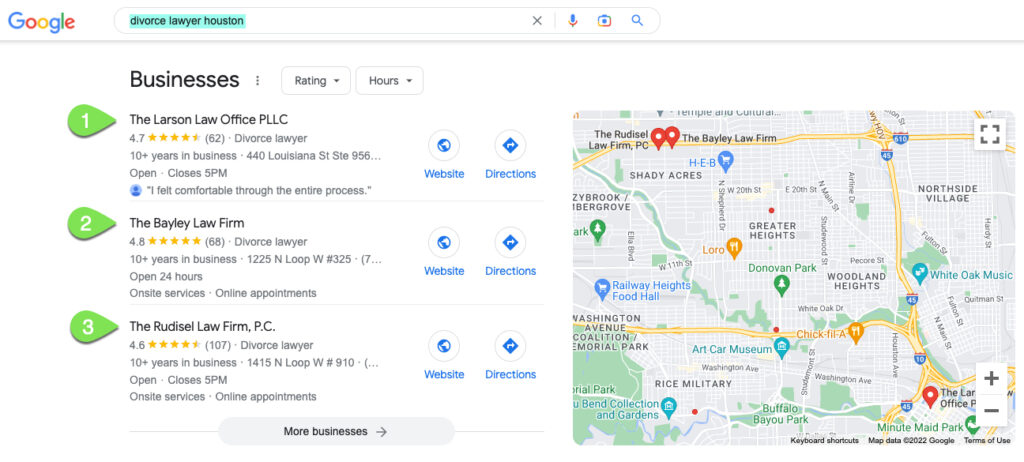
So, is link building essential for ranking in Google Maps? The answer is probably, but it’s not as vital as other factors.
Based on my experience, law firms can achieve strong exposure in the map pack, especially within a modest geographic area surrounding their office, without heavily relying on link building.
To rank in the 3-pack, you need to be listed on the most influential local listing sources, such as Yelp, Apple Maps, Facebook, and others. This practice, traditionally known as citation building, remains relevant and important for local SEO. Whether you call it citation building or local listing management, it’s essentially a form of link building.
The more competitive your market and area of law, the more links will generally be required to rank highly, particularly as searchers move further away from your office. However, according to the latest iteration of WhiteSpark’s Local Ranking Factors, the importance of links has been declining since 2015:
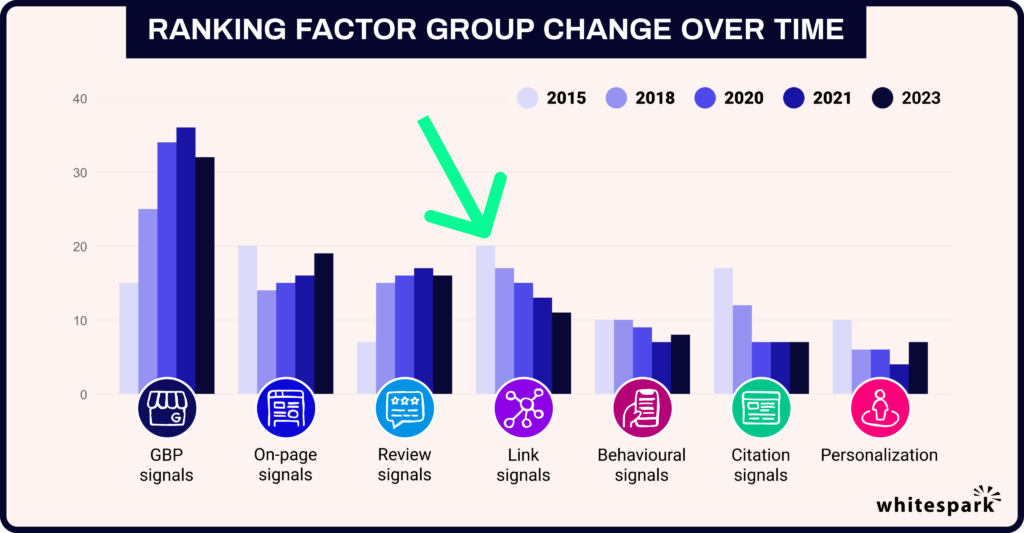
As link signals have decreased in importance, other content-related factors have gained prominence. These include optimizing your Google Business Profile (GPB), optimizing the website linked from GPB, and client reviews.
My advice is to consider link building as a last resort for improving your Google Maps rankings. In many cases, law firms can achieve solid rankings in Google’s 3-pack without significant link building efforts. However, in highly competitive markets, link building might still be necessary.
Wrapping it up
I used to believe in the power of link-building, but now I don’t. Based on my experience with clients, I no longer consider link-building necessary to achieve high rankings for profitable keywords. Moreover, the opportunity cost of building links is high, as it takes time and resources away from areas that offer more intrinsic value.
My advice for link building is to do as little as necessary to achieve your goals, which often means doing none.
